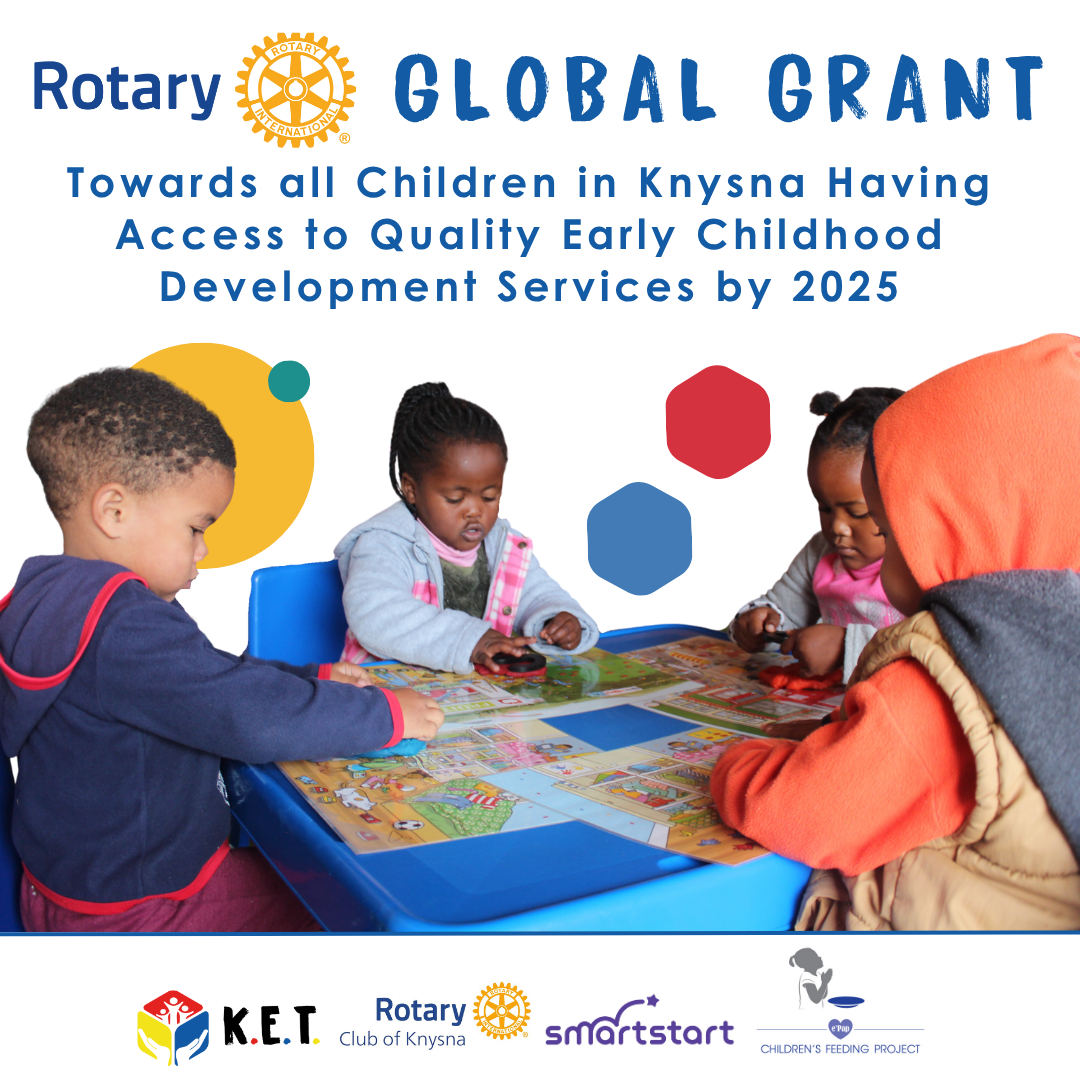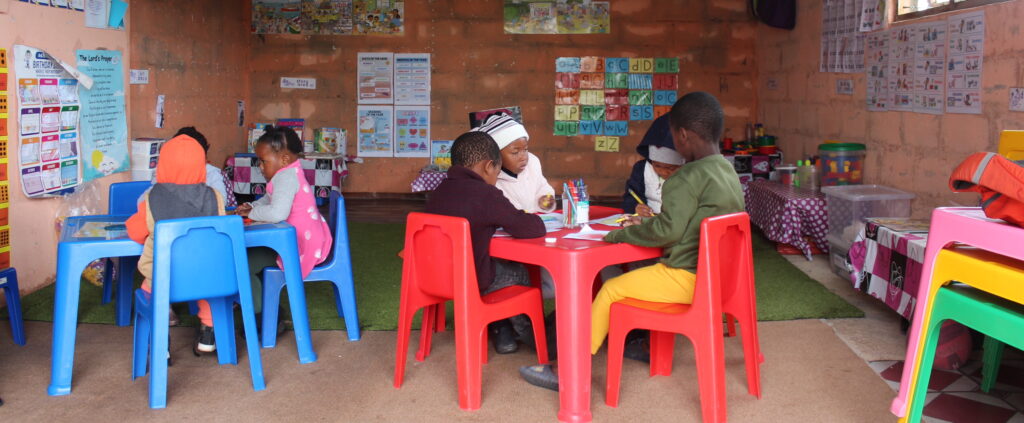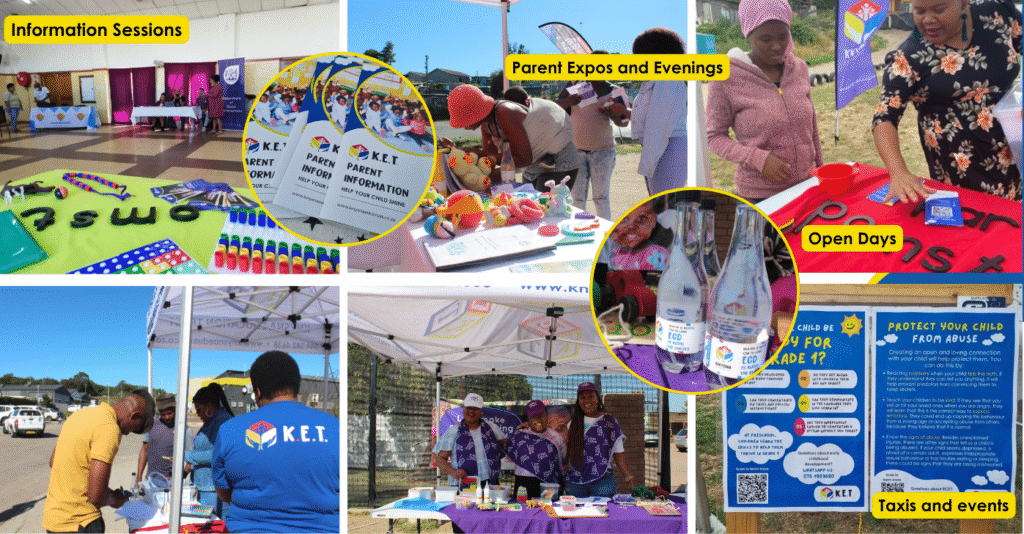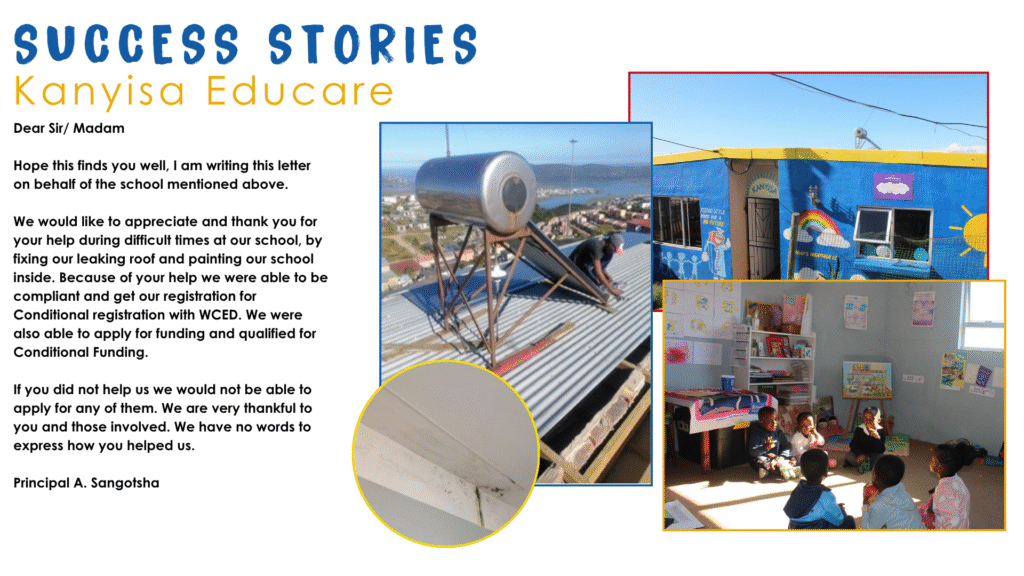
A Village in Action: Knysna’s Commitment to Every Child’s Early Start
In South Africa, over a million children under five have no access to formal Early Childhood Development. Without this foundation, they fall behind before they even start school — and the effects ripple outward, deepening cycles of poverty and weakening the social fabric of our society. In Knysna alone, the 2022 Census revealed that 3,500 young children do not access any structured ECD programme.
In 2019 the Rotarians of the Knysna Rotary Club came to KET asking what we need to do as a community to ensure that all children in Knysna have access to a quality ECD programme by 2025. Together we developed a plan focused mainly on three strategic pillars:
- Expanding access to early learning by activating new ECD programme sites;
- Boosting sustainability of existing sites by helping nearly qualifying centres become fully registered and eligible for the government ECD subsidy;
- Building demand for quality ECD among parents;
Through its international network of Rotary clubs and Rotarians, the Knysna Rotary Club secured additional financial support from eight clubs in the United Kingdom and one in Germany. This funding was successfully matched by Rotary International, resulting in a Global Grant of close to R900 000. Unfortunately, all plans had to be put on hold during the Covid-19 pandemic, which brought the world to a standstill — but by 2022, the project was finally able to move forward.
To expand access, we recognised the need to invest in people — specifically, by empowering women in underserved communities to open and manage their own ECD centres. SmartStart, a national ECD social franchise, was designed with this goal in mind. It equips women to run Day Mother centres from their homes by providing training, resources, and ongoing mentorship, enabling them to deliver a structured daily programme for children aged 3 to 5.
As a SmartStart franchisor, KET helped launch 50 new SmartStart franchisees across Knysna and Bitou — 29 within existing centres needing structure, and 21 in entirely new sites. Over three years, these classrooms provided early learning to more than 3,850 children. While starting a small business proved challenging — with 58 women dropping out after training and 43 later becoming inactive — around 33% remained active long term. Despite the attrition, creating nearly 4,000 new early learning opportunities made the effort worthwhile.

One of the greatest achievements amongst these newly established centres was how quickly three of them registered with the Western Cape Education Department (WCED) and qualified for government subsidy. Many preschools operate for years without ever reaching this point. In two of these cases, the progress was largely driven by principals with a deep passion for early childhood development, combined with strong business acumen. Their commitment played a pivotal role in fast-tracking the journey from informal operation to partially compliant, funded ECD centres.
Of course, children don’t attend ECD centres on their own — it’s parents who must be convinced that regular attendance is worth the effort and cost. To reach families directly, we launched a multi-platform parent campaign that engaged over 5,000 parents through expos, events, and community meetings. We shared messages through more than 40 media features — across blogs, adverts, articles, and social platforms — tackling key themes like the benefits of ECD, what children actually learn in preschool, and how even small fee contributions support quality care.

Nutrition is a powerful driver — not just for learning, but also for attendance. Parents are more likely to send their children to centres where a meal is guaranteed, and children cannot learn on an empty stomach. That’s why we ensured that each of these new Smartstart playgroups/classes provides a daily breakfast of e’Pap — a nutrient-dense, pre-cooked porridge specifically formulated to fight malnutrition by delivering essential vitamins and minerals in a form young children can easily absorb.
Finally, to register with the government and qualify for the ECD subsidy that supports centre operations, ECD sites must meet health and safety standards — requirements that often depend heavily on adequate infrastructure. Many centres across Knysna face serious challenges — leaking roofs, mould, unsafe floors — which directly affect both safety and learning. The Global Grant allowed us to upgrade infrastructure at 27 centres. This included everything from toilets and geysers to entire classroom builds. As a result, 20 centres successfully registered with the Western Cape Education Department, and seven are now receiving government subsidies. Today, 40% of Knysna’s ECD centres receive some form of government funding.
They say it takes a village to raise a child — and in Knysna, we’re proud to be part of a community that truly cares. This project not only expanded access to early learning for thousands of children but also helped launch 50 women-led small businesses and strengthened the sustainability of 27 established sites. It’s a meaningful contribution, made possible by people from all walks of life coming together with a shared purpose. As Madiba said, “there can be no keener revelation of a society’s soul than the way in which it treats its children.”




